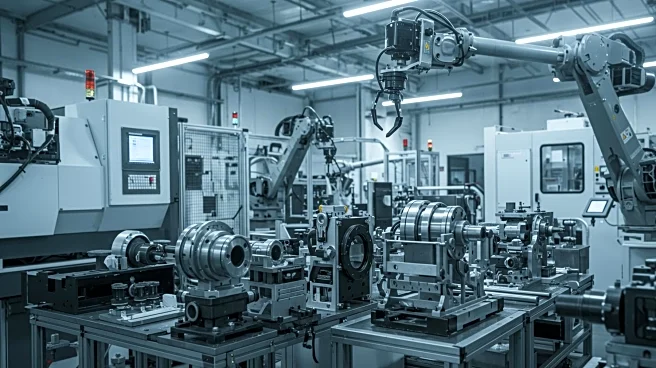What is the story about?
What's Happening?
The concept of 'Made in America' is facing scrutiny as many iconic American companies continue to manufacture their products overseas due to lower labor costs. Despite President Trump's tariffs aimed at encouraging domestic production, companies like Apple, Nike, and Levi-Strauss rely heavily on international manufacturing to meet consumer demand for affordable goods. The focus on cost reduction and competitive pricing drives these companies to maintain overseas production, challenging the notion of 'Made in America' as a feasible goal.
Why It's Important?
The reliance on international manufacturing by American companies highlights the complexities of global trade and economic strategies. The tariffs imposed by President Trump aim to reduce the trade deficit and encourage domestic production, but the economic realities of cost and consumer demand present significant challenges. This situation underscores the need for a nuanced understanding of 'Made in America,' considering factors like innovation, entrepreneurship, and the role of American universities in fostering new business ideas.
Beyond the Headlines
The debate over 'Made in America' extends beyond manufacturing locations to encompass the entrepreneurial spirit and innovation that define American companies. The focus on patents and new business applications reflects the broader economic value of American ingenuity. Efforts to reshape higher education and entrepreneurship may impact the future of 'Made in America' companies, highlighting the importance of nurturing innovation and supporting new business ventures.
















